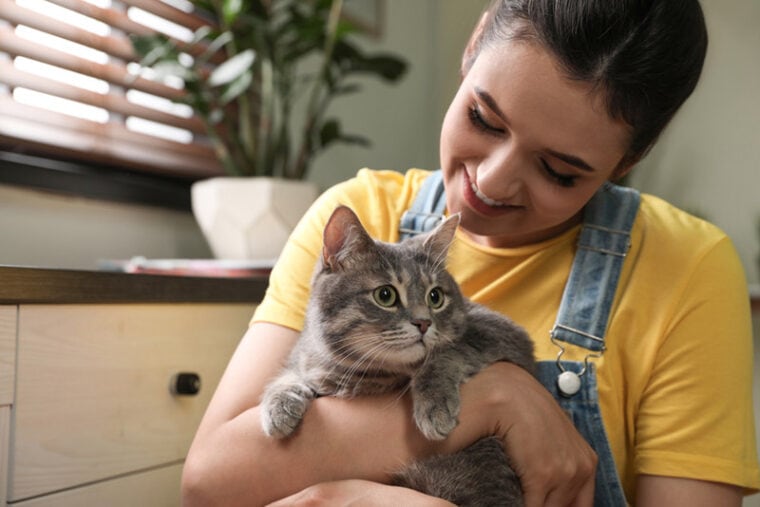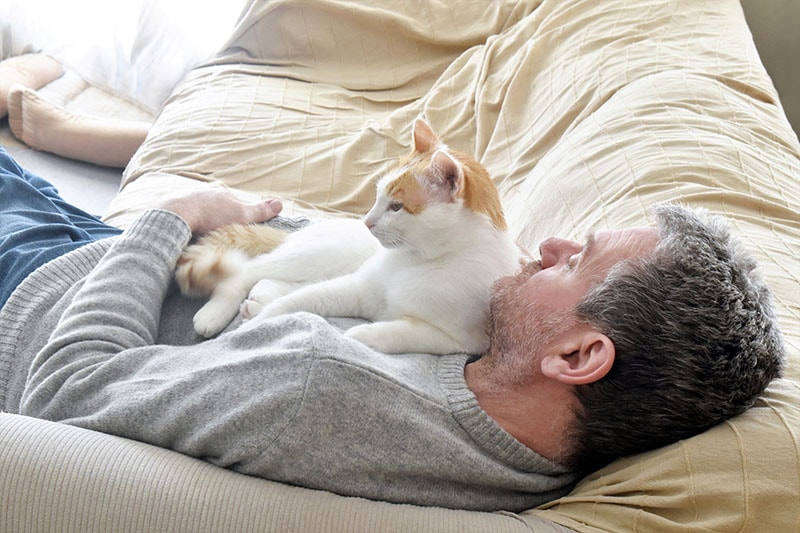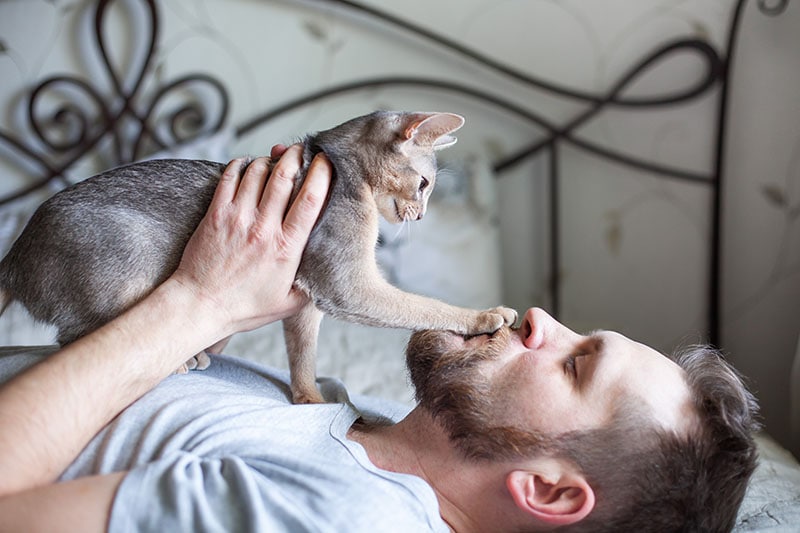
The answer to this question can differ depending on your cat, but most cats seem to have no problem with baby talk and even respond better to this tone in their human’s voice.
If you find yourself raising your voice’s pitch and talking to your cat differently, you might wonder if this bothers your cat or if they may even like it. This article will give you all the answers you need regarding whether cats like baby talk or prefer your normal tone of voice.
Why Do We Talk in a Baby Voice to Cats?
As pet owners, we can love our pets as if they were our children. This often makes us talk in a much higher pitch than we would normally, indicating that we feel happier and more protective and want to talk in a gentler tone to get our feline companions’ attention positively.
For many cat owners, felines are viewed as a valuable part of the family, and our tone of voice changes when we talk to them because we view them as smaller, more delicate, and cute. Our affection can range from how we treat and care for our cats to how we talk to them as if they can hear and understand what we are saying. This makes us speak to our cats as a parent would speak to their younger child.
This way of speaking is commonly seen when an adult is speaking to a younger child by using slower speech with a livelier and positive tone, reduced complexity, and noticeable word repetition that is most often used when speaking to babies and our beloved animals, hence the name “baby talk” or using the “baby voice”.

Do Cats Prefer Us to Use Baby Talk?
It is unclear whether all cats like it when we talk to them as if they were a baby. Some cats may find the higher tone annoying, whereas other cats may perk up to the high pitch in our voice when speaking to them because they associate this voice with something positive, as it is very rare that you will use baby talk to a cat who has done something it wasn’t supposed to, such as scratching your furniture.
Cats—just like young babies—are unable to understand the direct words we use when we speak to them, so they rely on the sounds of your voice to pick up on your mood. So, it makes sense that using a higher tone of voice to get their attention will work, as your cat may seem more interested in what you are trying to convey by your tone of voice.
Why Do Cats Respond Better to Baby Talk?
Researchers believe cats pay more attention to the high and positive pitch of baby talk because it increases the neuronal processes (the routes used by the brain to process stimuli) involved, which is like what happens with young babies.
Some scientists believe this way of speech is used on cats and other animals because the higher-pitched voice helps create and maintain an emotional bond specific to the animal. Your cat may pay less attention to you when you talk in your normal monotone voice; however, as soon as you start to direct your words to them in a higher-pitched voice, they seem to take more notice of you.
Some cats even “reply” to their owner’s baby talk by gently meowing at them or rubbing themselves against their owner, a common sign of contentment and affection in your cat towards you. This can tell cat owners as well as researchers that a cat can pick up on our tone of voice and respond to it.

Final Thoughts
Most cats seem to have no problem with baby talk from humans, and some even show more interest in their owners when they are spoken to in a high and positively pitched voice. This can suggest that cats prefer this communication and can even associate this voice with the tone you specifically use to communicate with them.
The next time you speak to your cat, feel free to try the baby talk on them to see how they react. You could even use this tone of voice when feeding or cuddling them so that they can associate this tone of voice with something positive.
Featured Image Credit: New Africa, Shutterstock






